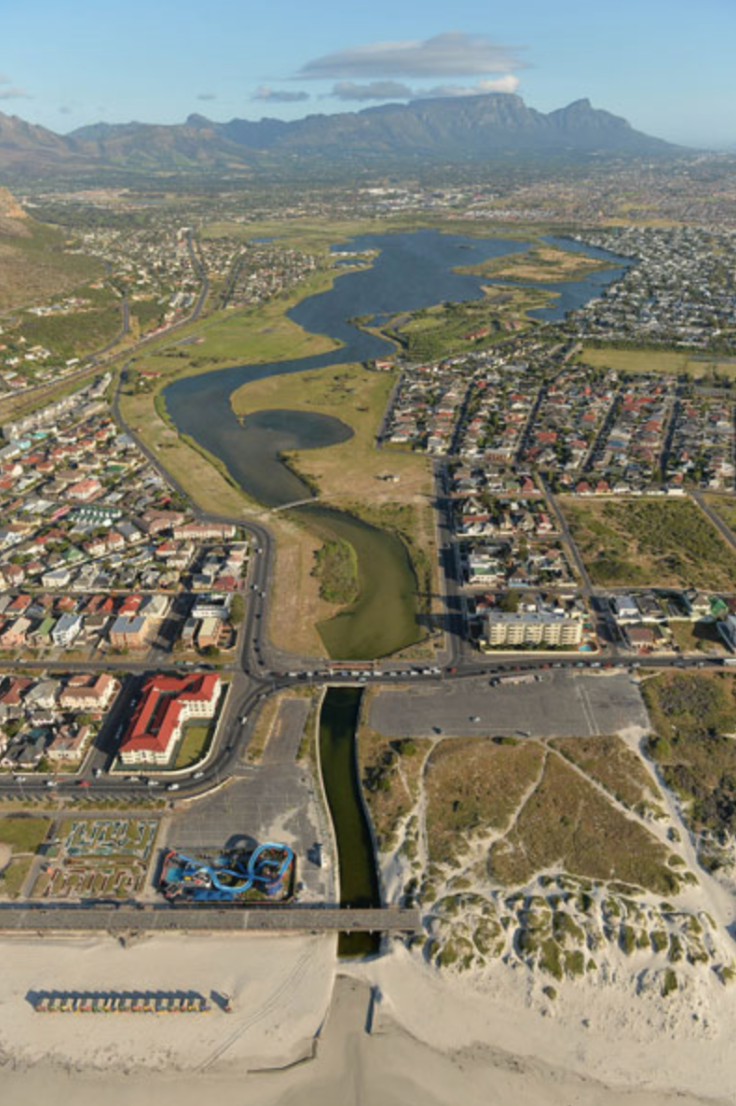Case-study /
FRACTAL Learning – Adaptation Inspiration Theme Module 1

Please note this case is the introduction to a FRACTAL training theme on Adaptation Inspiration conducted in 2018. The training was informed by cases collated from FRACTAL project partners as examples of good practice in urban adaptation in Africa. The cases cover a range of approaches to adaptation and urban challenges to a range of climate hazards and other stressors. Solutions also address several of the UN’s Sustainable Development Goals.
In total, 17 case studies are reported on in the Inspiring Adaptation in African Cities Working paper – a product of the FRACTAL project. Click through to the article to find further inspiring cases.
Module 1: Introduction to Adaptation Inspiration Theme
Welcome to the first FRACTAL Learning Theme on Adaptation Inspiration delivered through WhatsApp for a training course in 2018!
The aim of the training was to:
- build decision-makers capacity to consider climate in their decisions;
- disseminate real world examples of adaptation good (and bad) practice; and
- establish a community of practice to share knowledge and learning.
The Adaptation Inspiration theme was informed by cases collated from FRACTAL partners as examples of good practice in urban adaptation in Africa. The cases cover a range of approaches to adaptation and urban challenges to a range of climate hazards and other stressors. Solutions also address several of the UN’s Sustainable Development Goals.
The modules in this Adaptation Inspiration theme training are:
- Module 1: Introduction to the Adaptation Inspiration theme training
- Module 2: Maputo, Mozambique: Private-Public-People networks for climate compatible development addressing adaptation and disaster risk
- Module 3: Cape Town, South Africa: An integrated approach to river catchment management
- Module 4: Lesotho: Tackling water insecurity: an assessment of future national water management developed as part of the 2016 Lesotho Water Security and Climate Change Assessment.
- Module 5: Lusaka, Zambia: Building disaster risk reduction and emergency response to flooding
- Module 6: Summary of FRACTAL training on Adaptation Inspiration
Process and Feedback
Participants of the WhatsApp training received a WhatsApp message and a link to the latest module every week for six weeks. Participants studied the cases and resources, addressed questions posed and joined in online discussion through the forum located beneath the cases.
Feedback regarding the modules, platform and the process, was collated at the end of the training through an online survey.
Background to city case study modules
The need for climate change adaptation has been recognised in developing countries since the early 1990s. The 2015 Paris Agreement provided renewed enthusiasm for addressing the issue. In addition to requiring all countries—not just developing ones—to undertake National Adaptation Plan (NAP) processes, the Paris Agreement also calls on countries to improve the “effectiveness and durability” of their adaptation actions. Despite significant advances in adaptation in Africa and the recognition that adaptation is fundamentally about risk management and can have immediate benefits for reducing the impacts, there remain challenges related to access to data, planning at an unsuitable scale and integration across sectors. ‘No regrets’ or ‘low regrets’ measures such as increasing access to information and resources, improving health services, diversifying cropping systems, strengthening access to land, credit and other resources for poor and marginalised groups and making water and land management and governance more effective are good for development, irrespective of changes in climate (ODI and CDKN, 2014)*.
The focus of this training theme is the African continent’s urban adaptation. The continent will lead the world’s population growth over the next 50 years. Moreover, ‘the people of Africa will increasingly be city dwellers’ meaning that ‘Africa will have some of the largest mega-cities in the world’ (African Development Bank, 2014)*. While no continent is immune to the impact of climate change, the African continent in general, and Sub-Saharan Africa in particular, face a particularly broad array of environmental issues including: increased water stress, higher risk of coastal inundation, changes in river hydrology, increased exposure to infectious disease, and alterations to the magnitude and frequency of extreme events.
The case studies highlighted in this theme are intended to provide practical options to inspire national and municipal governments, city planners, NGOs, private companies, international institutions, and communities to take action to implement further adaptation projects on the continent.
Call to action
What are your (personal) learning objectives? Post a comment in the discusson forum below with what you hope to learn over the next six weeks.
- *Inspiration from Community-based Action against Flood Risks in Dakar
- FRACTAL: Future resilience for African cities and lands
- Adaptation Inspiration Theme Summary
- Adaptation Inspiration Theme Module 2
- Adaptation Inspiration Theme Module 3
- Adaptation Inspiration Theme Module 4
- Adaptation Inspiration Theme Module 5
- Adaptation Inspiration Theme Module 6
- *CDKN/ODI (2014) The IPCC’s Fifth Assessment Report | What’s in it for Africa?
- *African Development Bank (2014) Tracking Africa's Progress in Figures
